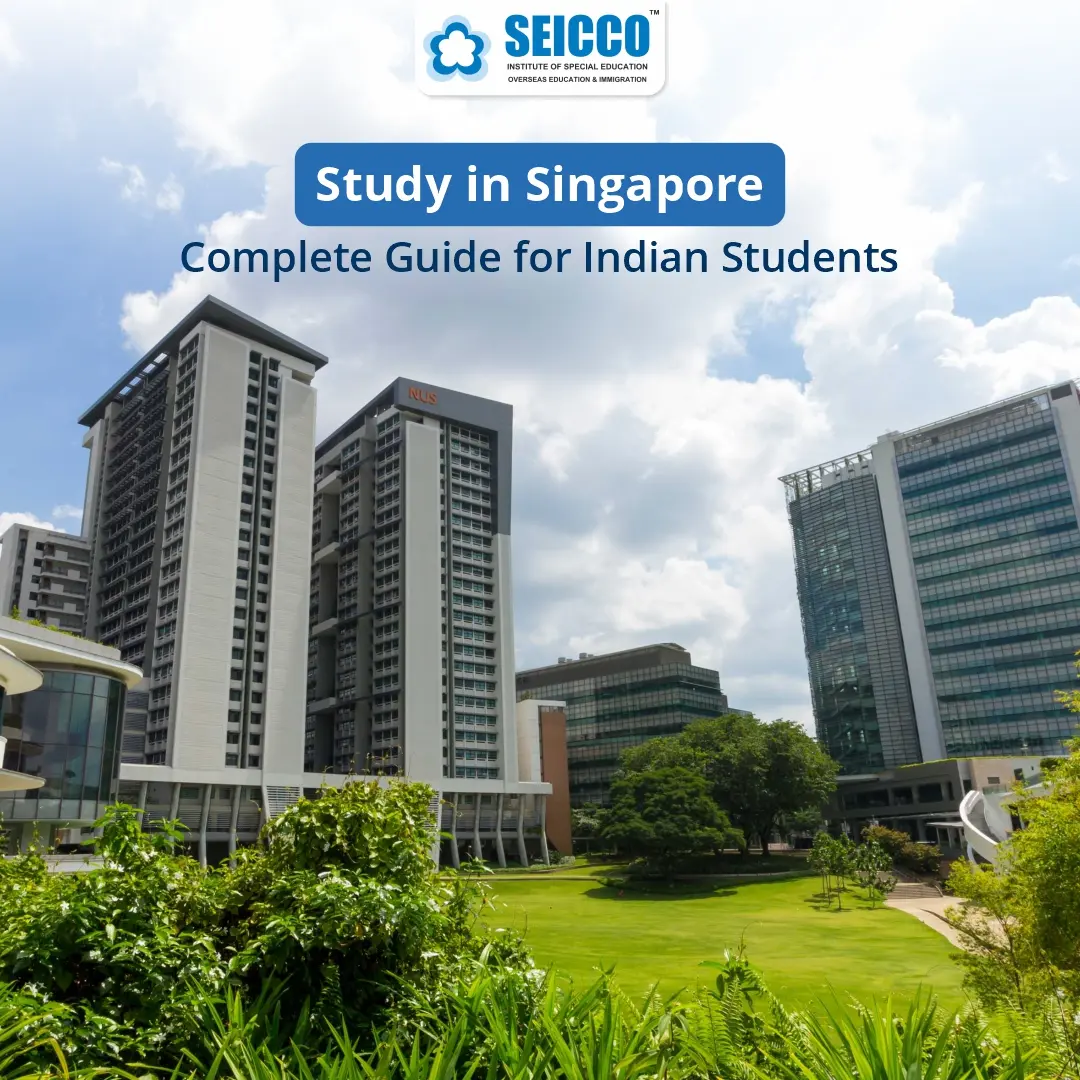Introduction: India and Ireland — A Growing Educational Bridge
India and Ireland share a long-standing history of diplomatic, cultural, and academic engagement. Over the past two decades, this relationship has deepened significantly, especially in the field of education. With its high-quality education system, welcoming multicultural environment, and a growing Indian student community, Ireland has become one of the top destinations for Indian students pursuing higher studies in Europe. The shared use of English, Ireland’s safe environment, and access to the EU job market make it even more attractive.
As of recent years, Ireland has seen a steady increase in Indian student enrollments—particularly in fields like data science, business analytics, pharmaceuticals, IT, and healthcare. If you’re considering Ireland for your higher education journey, understanding the admission requirements is crucial.
Ireland Admission Requirements for Indian Students
1. Academic Qualifications
Ireland offers programs at undergraduate, postgraduate, and doctoral levels. The academic requirements vary depending on the level and institution:
- Undergraduate Programs:
- Indian students must have completed 10+2 from a recognized board (CBSE, ISC, or state boards).
- A minimum of 65% or higher is usually expected in Class 12 for admission to top universities. Some courses like engineering or medicine may require higher marks in specific subjects (e.g., Math or Science).
- Indian students must have completed 10+2 from a recognized board (CBSE, ISC, or state boards).
- Postgraduate Programs:
- A bachelor’s degree from a recognized Indian university is essential.
- Most Irish institutions ask for a minimum of 55–70% aggregate, depending on the program and university ranking.
- For management, business, or data science programs, relevant academic background or work experience might be required.
- A bachelor’s degree from a recognized Indian university is essential.
- Doctoral (PhD) Programs:
- A master’s degree in a relevant field is generally mandatory.
- Students are also expected to submit a research proposal and connect with potential supervisors before applying.
- A master’s degree in a relevant field is generally mandatory.
2. English Language Proficiency
As Ireland is an English-speaking country, proof of English proficiency is mandatory for all Indian students.
- Accepted Tests:
- IELTS: Minimum overall band score of 6.0–6.5 (no section less than 6.0)
- TOEFL iBT: Score of 80–90+
- PTE Academic: Score of 60+
- Some universities may waive these if the medium of instruction in your previous education was English (with proof), but this is not common.
- IELTS: Minimum overall band score of 6.0–6.5 (no section less than 6.0)
3. Application Process
The Irish higher education system includes universities, Institutes of Technology (IOTs), and private colleges. The application process may differ slightly, but here are the general steps:
- Choose your course and institution: Research programs, rankings, tuition fees, and scholarship opportunities.
- Prepare required documents:
- Academic transcripts
- English proficiency test scores
- Statement of Purpose (SOP)
- Letters of Recommendation (LORs)
- Resume/CV (for PG and doctoral courses)
- Passport copy
- Academic transcripts
- Apply online:
- Applications are typically submitted through the university’s official website or through the Central Applications Office (CAO) for undergraduate programs.
- Applications are typically submitted through the university’s official website or through the Central Applications Office (CAO) for undergraduate programs.
- Pay the application fee: This ranges from €20 to €50.
- Attend interviews (if required): Some postgraduate programs may require online interviews.
4. Tuition Fees and Scholarships
- Tuition Fees:
- Undergraduate courses: €9,000 to €20,000/year (Approx. ₹8 to ₹18 lakh)
- Postgraduate courses: €10,000 to €25,000/year (Approx. ₹9 to ₹22 lakh)
- Undergraduate courses: €9,000 to €20,000/year (Approx. ₹8 to ₹18 lakh)
- Scholarships for Indian Students:
- Government of Ireland International Education Scholarships
- University-specific scholarships like the Trinity College Dublin Global Excellence Scholarship, UCD Global Scholarships, and more.
- These scholarships can reduce tuition by €2,000 to €10,000 or even offer full waivers in rare cases.
- Government of Ireland International Education Scholarships
5. Visa Requirements
Indian students must apply for a D Type Student Visa. Key requirements include:
- Letter of acceptance from a recognized Irish institution
- Proof of payment of tuition fees
- Proof of funds: You must show at least €7,000 (approx. ₹6.2 lakh) for living expenses in addition to tuition
- Valid passport
- Health insurance
- Proof of academic and language qualifications
- Immigration medical screening, if applicable
Visa processing usually takes 4 to 8 weeks, so apply well in advance.
6. Work and Stay Options After Study
- Students can work part-time (up to 20 hours/week during term and 40 during holidays).
- After completing eligible degrees, you can apply for the Third Level Graduate Scheme, which allows:
- 1-year stay-back for bachelor’s degree graduates
- 2-year stay-back for master’s degree holders
- 1-year stay-back for bachelor’s degree graduates
This post-study work option is a major incentive for Indian students looking to gain international job experience.
Key Highlights
- Ireland is home to top-ranking universities like Trinity College Dublin, University College Dublin, and National University of Ireland, Galway.
- No language barrier, as courses are taught in English and locals are fluent in the language.
- Offers generous stay-back visa options and a tech-driven job market with companies like Google, Meta, Pfizer, and Apple based in Ireland.
- Comparatively more affordable than the UK or USA in terms of tuition and living expenses.
- Growing Indian student population, cultural societies, and Indian communities offer support and a sense of belonging.
Final Thoughts
Ireland offers Indian students a golden combination of high-quality education, a friendly and safe environment, and robust post-study work opportunities. Whether you’re aiming for a career in tech, business, healthcare, or research, Ireland’s world-class institutions and vibrant multicultural society can be the launchpad for your global journey.
FAQs
Q1: Is studying in Ireland expensive for Indian students?
Ireland is relatively affordable compared to countries like the USA and UK. With tuition starting around ₹8 lakh and part-time work opportunities, it’s manageable for many students.
Q2: Can I get a scholarship as an Indian student?
Yes, Indian students are eligible for numerous scholarships offered by both the Irish government and universities. Some offer significant tuition reductions or full tuition waivers.
Q3: Is it easy to get a visa for Ireland from India?
If you meet the admission and financial requirements, obtaining an Irish student visa is generally straightforward. Applying early with all documents increases your chances.
Q4: Are Indian degrees accepted in Ireland?
Yes, degrees from recognized Indian universities are accepted, especially for postgraduate admissions. For certain professions, additional certification may be needed.
Q5: What is the cost of living in Ireland for Indian students?
Monthly living expenses range from €700 to €1,200 (Approx. ₹62,000–₹1,05,000), depending on location and lifestyle.







